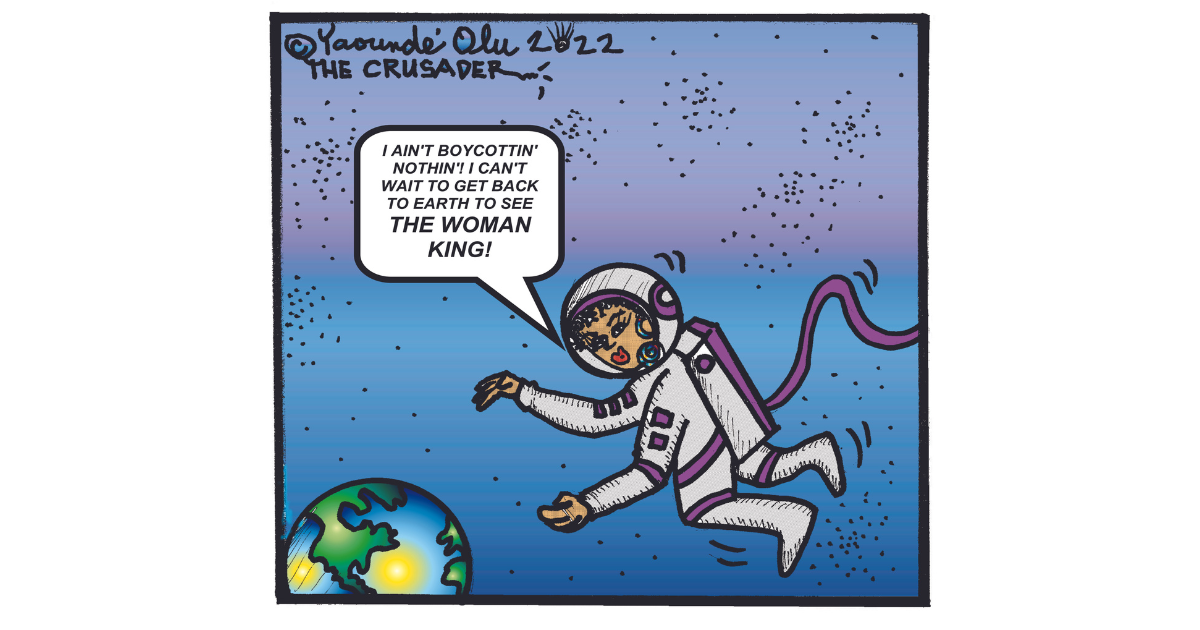The Woman King, a film starring Viola Davis who reportedly advocated for the making of this film for at least six years, is king at the box office. It is highly lauded by African Americans and others across the country, but it is also maligned. It has drawn a wedge between differing camps in the Black community for various reasons.
The film tells a very complicated story that highlights the slave trade on the West Coast of Africa, Dahomey, and the fight to sustain it or prevent it, pitting two camps of Africans against each other.
This historical epic is inspired by true events that happened in the Kingdom of Dahomey, one of the most powerful states of Africa in the 18th and 19th centuries. The main protagonists are a group of Black female warriors called the Agojie (also known as Ahosi (king’s wives), who have been compared to the all-female tribe of Amazons.
The film co-stars John Boyega, who played a pivotal role as the King of Dahomey. The warrior women were under his reign, and there were significant discussions around the slave trade as a cash cow for the Africans and the notion of finding another way to bring economic success to the region outside of the slave trade.
Throughout the film, Blacks were pitted against Blacks in dealing with the difficulties and contradictions aligned with the economy of the region; Blacks killed Blacks throughout the film.
On the other hand, the film has stirred controversy at home in the United States with Blacks pitted against Blacks once again. The biggest group in opposition to the film, but by no means the only group, is that of ADOS, American Descendants of Slavery. They are calling for a boycott of the film partially due to allegations that it doesn’t represent reality, that it is historically inaccurate.
There is also opposition because the movie was produced by a white woman, Maria Bello. This was a chief concern. But it is also suspect; there are many, MANY films produced by white people that have captured the attention and support of Blacks and whites alike; “Black Panther” is one of those. It had its origins in the Marvel Comics franchise.
ADOS are not the only ones in opposition to the film and calling for a boycott. Others are using the same rationale, i.e., that it is not historically accurate.
In this regard, it appears that some of this opposition is based on a reluctance to depict Africans’ involvement in the slave trade. Others are upset because they say that women would not have been able to defeat male warriors. This is a fallacy since the Ahosi are on record for defeating their opponents bringing an end to Dahomey’s reliance upon the slave trade.
With this aside, the movie was very well acted, was beautiful and had several ironic twists. The scenery was gorgeous, and the cultural aspects were spectacular. It is akin to the “Black Panther” film, but from another perspective, in that it is based on actual events.
Question: is it necessary for entertainment that tells an important story to have 100 percent accuracy? How many other films can boast that there are no inaccuracies depicted? Was “Roots” 100 percent accurate?
More importantly, this movie is like the “Black Panther” in another regard; how can you go wrong if you have Black people in a beautiful setting interacting with each other and winning, revealing incidents and activities that many did not even know existed?
Just the mere fact that the movie depicted the magnificence and strength of African women alone has had a positive impact on the morale of Black women; how can you go wrong with that?
Basically, the economic engine fueled by this film is enough to warrant its continued distribution. For too long African Americans have complained about the lack of inclusion in films. Yet people are calling for a boycott of one of the most successful films of the year featuring Black people and their issues. This is a repeat of those calling for the boycott of the movie “Harriet,” because Cynthia Erivo, the star, was not born in the U.S.
This activity is ridiculous and needs to stop! If you don’t want to see the film, don’t support it, but don’t try to keep others from seeing it. Let people make up their own minds! Those who are acting as Black culture “gatekeepers” are demonstrating the kind of backward thinking that is seen in the current trend to ban Black books, and the 1619 Project! Cease and desist this counterproductive, anti-economic trend! A Luta Continua.






